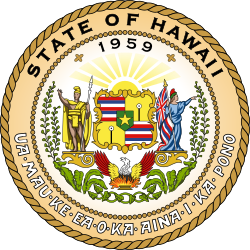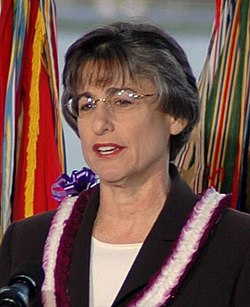| ||||||||||||||||||||
| ||||||||||||||||||||
 County results Cayetano: 50–60% Lingle: 40–50% 50–60% | ||||||||||||||||||||
| ||||||||||||||||||||
| Elections in Hawaii |
|---|
 |
The 1998 Hawaii gubernatorial election was held on November 3, 1998. Incumbent Democratic Governor of Hawaii Ben Cayetano ran for re-election to a second and final term, and he was contested by Maui Mayor Linda Lingle. The race between Cayetano and Lingle was close, with Lingle holding a sizable polling advantage. [1] Ultimately, Cayetano narrowly won re-election to a second term in the closest gubernatorial election in Hawaii's history.
Contents
- Democratic primary
- Candidates
- Results
- Republican primary
- Candidates 2
- Results 2
- General election
- Polling
- Results 3
- Notes
- References
This, alongside the 1966 elections, is the only time a Democrat was elected governor without sweeping every county in the state. Lingle later won Hawaii's governorship in 2002 when Cayetano was term-limited; she was re-elected in 2006.

